The first time I saw my favourite Korean pop group perform I cried. Of course I overreacted, but it was a convincing and life-like holographic performance.
As much as I would like to say that this happened in my mid-teens, it all went down last year at an Everland theme park attraction in Yongin, South Korea.
There I was on the other side of the world, standing beside my best friend and before us was the illusion of G-Dragon, T.O.P., Tae Yang, Dae Sung and Seung Ri, the five members of the music group Big Bang, which we’d steadily been following for the last eight years.
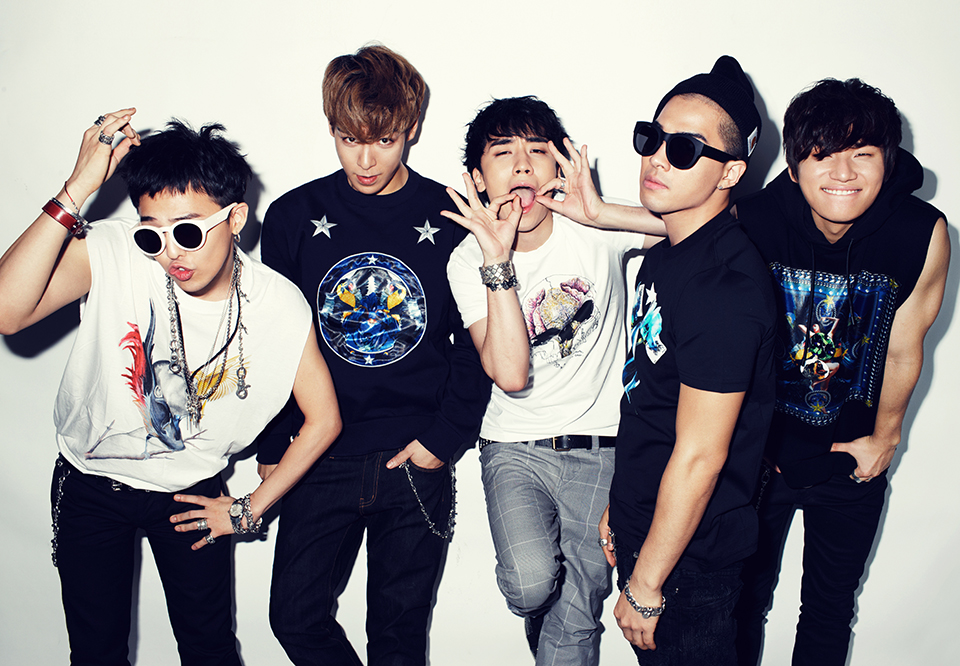
I always considered that day, and the two weeks I spent running through South Korea with my woe, one of my most astounding experiences.
That is until Big Bang journeyed over 10,000 kilometres to Toronto, Canada and I witnessed the group live.
In the months leading up to the grand performance I would tell friends and colleagues the best day of my life was slowly approaching because my favourite K-Pop band was coming to town.
This usually garnered one of three reactions from people:
1. They had absolutely no idea what K-Pop was.
2. They could not fathom how I was interested in a genre of music created in a language I did not understand.
3. They simply thought I’d lost my mind.
The latter may not be so far fetched, but the first two reactions prove one thing: the individual knew little about the genre and the elements that have allowed it to become such a strong international force.
For many people in North America, K-Pop first barged its way into their lives in 2012 when South Korean rapper Psy’s hit song “Gangnam Style” caught fire.
For many people in North America, K-Pop first barged its way into their lives in 2012 when South Korean rapper Psy’s hit song “Gangnam Style” caught fire.
At the time it was nearly impossible to conduct any social activity without hearing “Oppa Gangnam Style!” The infectious tune rapidly became an international phenomenon and was the first video on YouTube to garner a billion views.
The origins of K-Pop
Back peddling 20 years earlier to 1992, boy group Seo Taiji and Boys drop the hip-hop fused song “Nan Arayo (I Know)” that would later be recognized as the spark of modern South Korean pop music.
During this time, South Korea was swimming in traditional trot music and slow ballads, hankering for something fresh to spur the music scene. Although technology was rapidly advancing and South Koreans were able to easily access American R&B, hip-hop and rock music, there were very few who thought to bring the two worlds together.
Seo Taiji, Yang Hyun-Suk and Lee Juno played a huge role in paving the way for new lyrical and dance initiatives and are now idolized as the architects of the modern K-Pop culture.
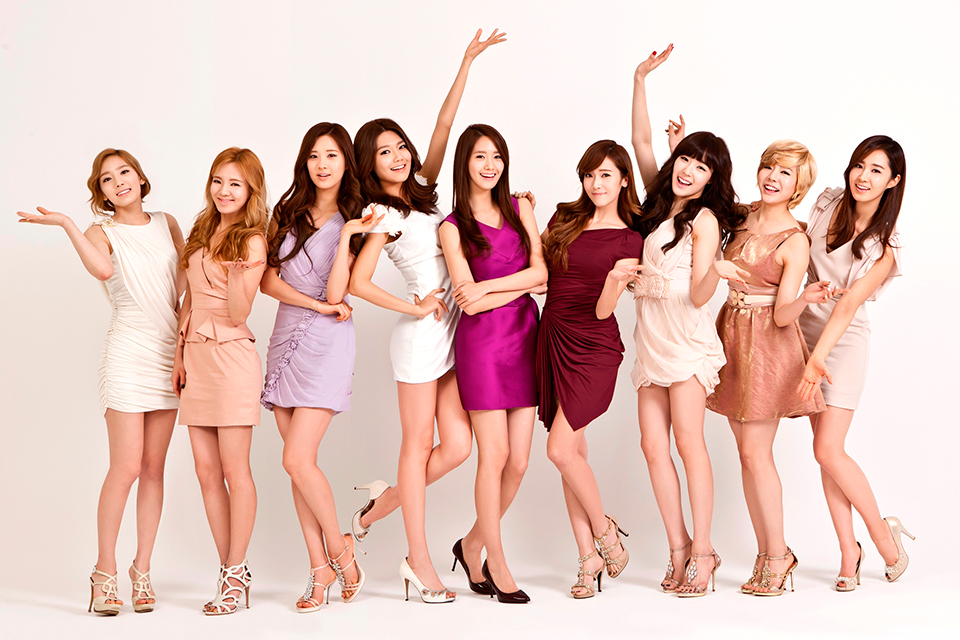
Today’s K-Pop culture has become incredibly infectious, mainly because it is manufactured to be as such.
K-Pop idols receive years of rigorous training in singing, dancing, acting and language lessons before they are able to debut in a group of as many as two to 15 members.
Juggernaut music agencies like S.M. Entertainment, home to superstar bands SHINee, EXO and Girls’ Generation, reap in millions of dollars each year through an impressive branding and promotion strategy.
A huge part of that strategy includes taking a page out of the Seo Taiji and Boys book, and blending influences from American pop trends.
This is most prominent in the theatrics of their music videos that are by far one of the most compelling aspects of the genre. Everything from the dramatic costumes, unorthodox hairstyles and harmonized dance moves are products of east meets west.
In Big Bang’s “Fantastic Baby” music video the scene opens with the leader, G-Dragon, modeling a mane of long scarlet hair, sitting atop a stone throne in the midst of an all-out war between Big Bang VIPs (how the group refers to their fan base) and those against the band’s music, a.k.a. anti-fans.
Falling in love with K-Pop
My vehement love affair with K-Pop began in the ninth grade when my friends were obsessed over some dudes in a boy band named Big Bang. Though it was true that they were quite adorable, I wasn’t convinced of their talent.
It wasn’t until I binged through all of the group’s music videos online that the strings of fate would bind me to them forever.
This fate is one I share with millions of others worldwide, and a good chunk of those fans also have no real understanding of the Korean language.
To be granted the opportunity to see the chart toppers perform live at their completely sold out show at Toronto’s Air Canada Centre during their 2015 MADE tour was remarkable. Never did I fathom that their fan base in Canada was so great.
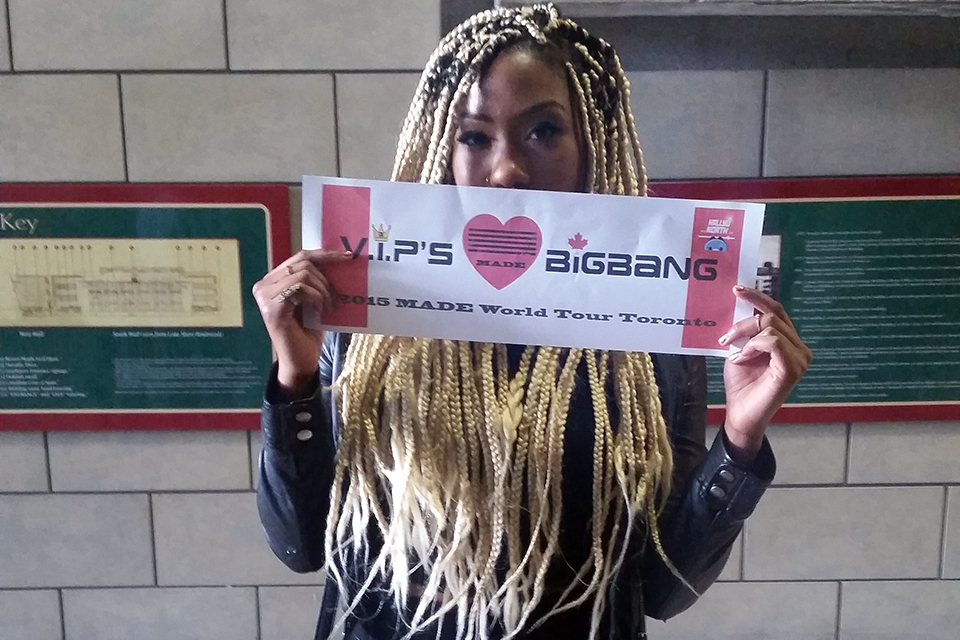
With an exclusive VIP laminate around my neck and official Big Bang glow stick swaying in the air, I gleefully sang along with each song, in my horribly inaccurate Korean, and screamed on cue.
I literally lost my voice mid-show, but miraculously gained it back when they performed my favourite track “Sober” off their most recent album, MADE.
People vibe off the tone and emotions portrayed in song and how that makes them feel; this is not something that can be restrained by a mere language barrier.
They endowed the audience with soulful ballads during songs like “Blue” and “If You”, and then surged up some adrenaline with vivacious choreography during “Good Boy” and “Bang Bang Bang” before showering the crowd with rainbow confetti.
Following the show my friends and I, along with the other Ultimate MADE VIP ticket holders, were led to the send off event where we could take photos with the band before they left for the after party.
With hearts in my eyes and a dumbfounded grin on my chin I was able to capture moments with G-Dragon, Seung Ri and the ever-so handsome T.O.P. My night, and my life, had officially been MADE.
One thing anyone can agree on is that music is universal.
People vibe off the tone and emotions portrayed in song and how that makes them feel; this is not something that can be restrained by a mere language barrier.
I’m not sure what the future of K-Pop in the west will look like a few years from now, but for now, I know my relationship with the genre is pretty fantastic baby.

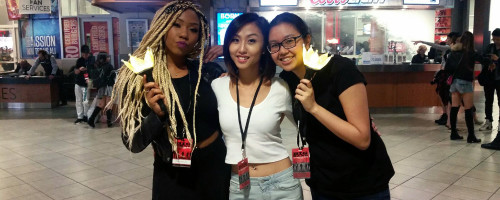
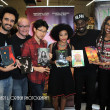
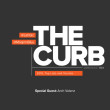
Comments are closed.